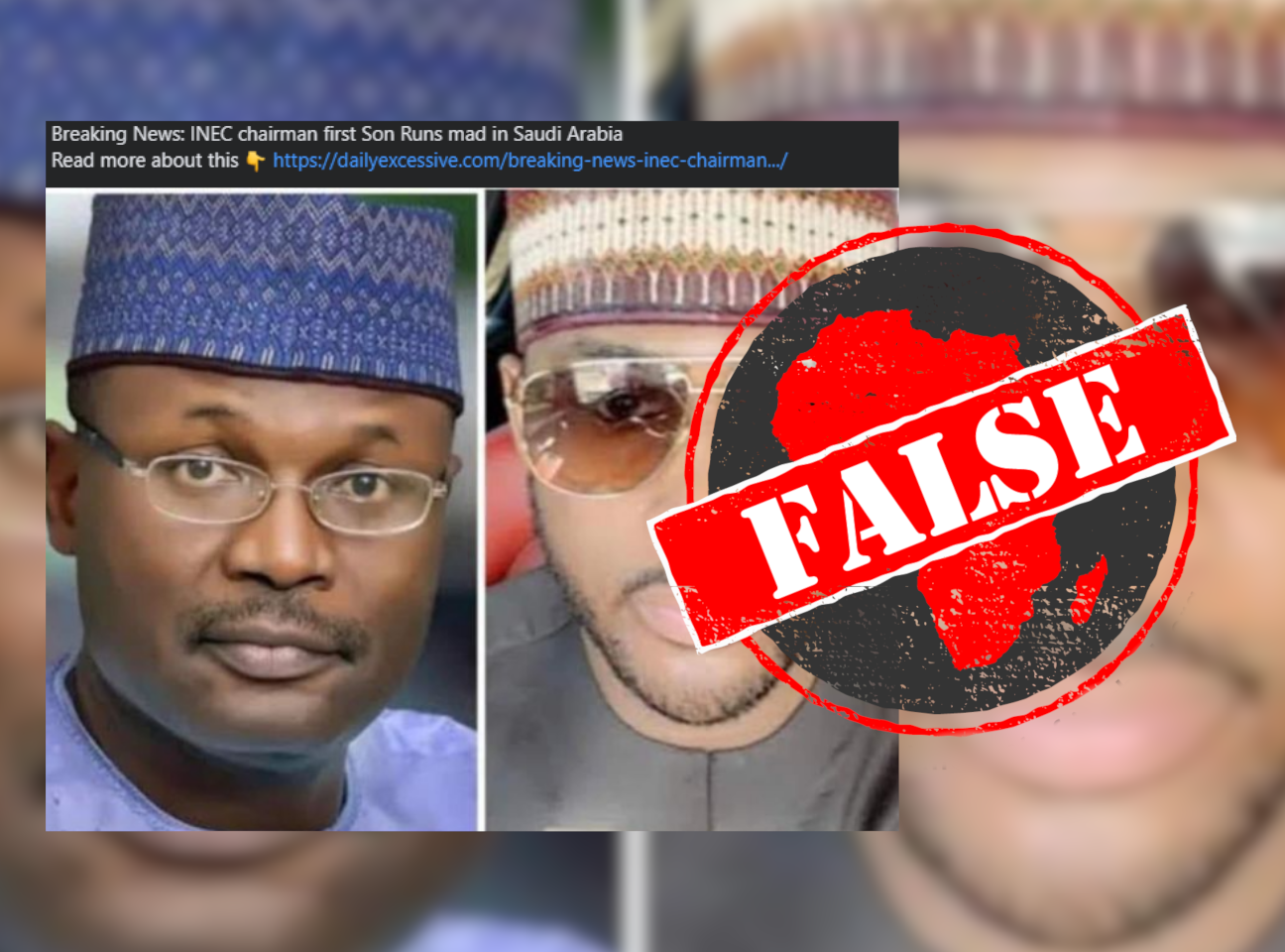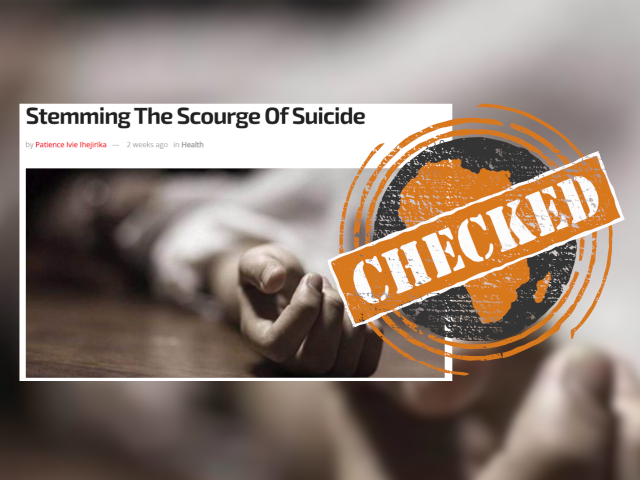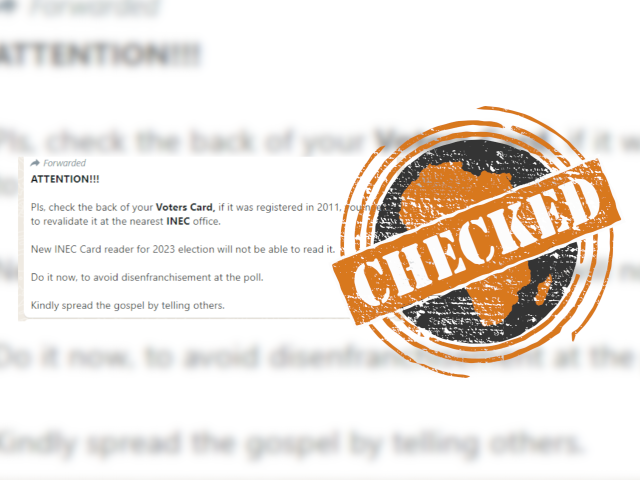IN SHORT: As court challenges to election results are heard across the country, the family of Nigeria’s electoral commission chair is among those targeted with unsubstantiated claims on social media.
A post circulating on Facebook in May 2023 in Nigeria reads: “INEC chairman first Son Runs mad in Saudi Arabia.”
The post, which includes a link to an article, claims that this was due to drugs and alcohol abuse.
Mahmood Yakubu is the chairperson of Nigeria’s Independent National Electoral Commission (Inec), the country's election management body.
The article also claims that the Saudi Arabian government has asked Yakubu to take his son "to England" for treatment.
Yakubu's role in Nigeria's 2023 general elections has come under intense scrutiny.
Some members of the opposition have called for his resignation over alleged irregularities, claiming he failed to conduct a credible election.
Bola Tinubu of the governing All Progressives Congress won the presidential election and was sworn in on 29 May, despite his victory being challenged in court.
The same claim about Yakubu’s son appeared here, here, here, here, here and here.
But is it true? We checked.

‘Fake news,’ says Yakubu’s spokesperson
The news article linked to in the Facebook post claimed to have obtained the information from a Saudi Arabian news agency, but did not specify which one.
It also claimed that due to the “recent UK and US ban on the Inec chairman and his family”, they are unable to fly his son to those countries for treatment.
But Africa Check has debunked the claim that Yakubu and other politicians in Nigeria are on a US visa ban list for their role in “undermining” the 2023 elections.
The claim is “fake news, please disregard”, Yakubu’s chief press secretary Rotimi Oyekanmi told Africa Check.
Republish our content for free
For publishers: what to do if your post is rated false
A fact-checker has rated your Facebook or Instagram post as “false”, “altered”, “partly false” or “missing context”. This could have serious consequences. What do you do?
Click on our guide for the steps you should follow.
Publishers guideAfrica Check teams up with Facebook
Africa Check is a partner in Meta's third-party fact-checking programme to help stop the spread of false information on social media.
The content we rate as “false” will be downgraded on Facebook and Instagram. This means fewer people will see it.
You can also help identify false information on Facebook. This guide explains how.




Add new comment